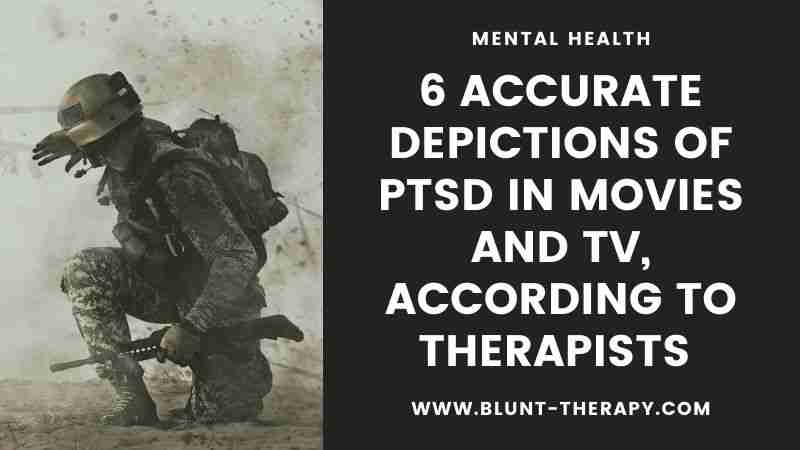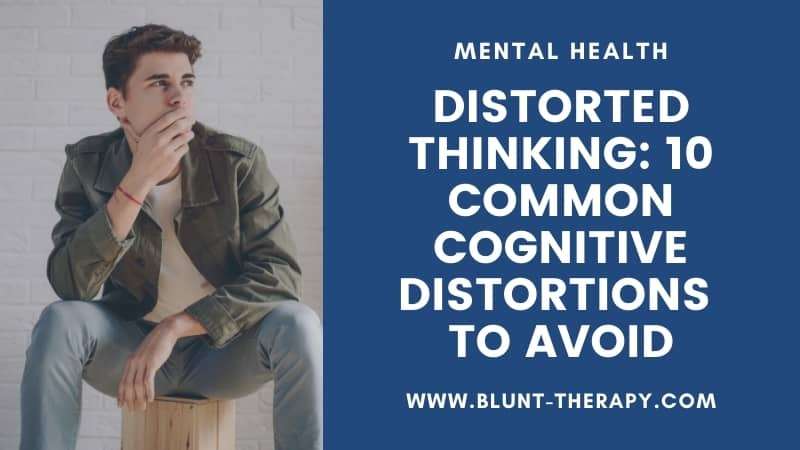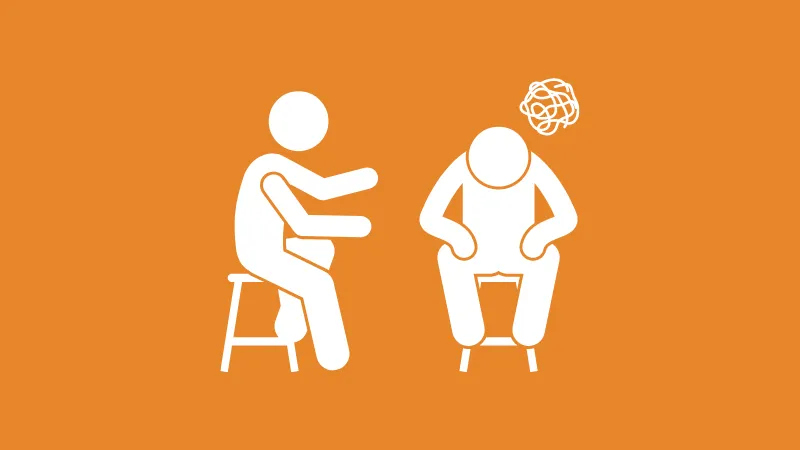Table of Contents
Affiliate link notice: As an affiliate of BetterHelp and other third-party vendors, We will receive compensation if you make a purchase using the links provided on this page. For more information, visit our disclosure page.
Last Updated on April 3, 2023 by Randy Withers, LCMHC
Do you ever feel like things are getting out of control and that your body can’t relax?
Are you snapping at loved ones and not knowing why?
Do you feel fidgety and bite your nails or are unable to focus?
If you answered even one of those questions with a resounding yes, chances are you suffer from chronic stress and you may not even know it. Don’t worry, we’ve all been there.
I was a high-strung, stressed-out medical student on a freight train to burnout. It helped tremendously though to research and learn about the effects of stress on my body. Even though I work in healthcare, I had rarely paid attention to my mental health or to the problems chronic stress had caused in my life.
But my research was a wake-up call, one I needed. I won’t say I’ve attained sage levels of calm, but I will say that it’s a work in progress. And when I saw the progress I had made, I wanted to share what I learned.
The Problem
Researchers say up to 77% of Americans are under extreme stress. We’re all familiar with the toll the ‘rat-race’ takes on our minds and bodies. But upon further research, I figured out that the impact of chronic stress is far graver than I had initially imagined.
As medical professionals, we have been conducting research on stress for decades, yet we don’t pay enough attention to it when we talk to our patients. But the truth is, chronic stress kills and we need to talk more about it.
When I realized the degree to which stress was affecting me, it forced me to make a change.
The impact – What stress can do to our bodies and minds
Any intrinsic or extrinsic stimulus that evokes a biological response is known as stress. The effects of stress on the brain have been investigated for over 50 years. Today, we know that chronic stress is not only detrimental to our mental capacity but can cause damage to every one of our organs.
The brain
It can accelerate the rate of atrophy of the hippocampus (the part of the brain that stores memories) and the prefrontal cortex (the part of the brain responsible for judgement), reducing cognition and decreasing reaction time.
Chronic stress increases cortisol (a steroid hormone) which can sever connections in the brain, thereby affecting ‘Long term potentiation’ or your ability to learn. So, stress can cloud your mind, impair your judgement, and diminish your memory.
The immune system
Stress releases ACTH and cortisol, which suppresses the body’s immune system leaving you susceptible to more infections and illnesses. To make matters worse, chronic stress suppresses your T-lymphocytes and natural killer cells, leaving you prone to malignancies as well.
The cardiovascular system
The cardiovascular system bears the brunt of most psychological stress.
Stress activates the sympathetic nervous system, which increases heart rate and blood pressure, the progression of myocardial ischemia which is the major cause for heart attacks, as well as sudden death due to arrhythmia.
The gastrointestinal system
The gastrointestinal system isn’t spared either.
Stress can cause a reduction in appetite and digestion, and can be the sole inciting factor for chronic diseases like Crohn’s disease.
Due to the multi-factorial mess created by chronic stress, there is a strong desire in the medical community to address the deleterious impact of stress on our bodies.
The effects: how stress might present itself.
Chronic stress is a wily, shape-shifting demon. Believe it or not, it can manifest as literally any symptom you can imagine.
Ranging from stomach upsets to blackouts, the list is long and often confusing. However, these are some of the most common symptoms, and if you experience more than one of these frequently, it might be time to take action.
Chronic Acne
If you’ve tried everything under the sun to cure your pimples, and they just won’t go, chances are you are under too much stress, and you need to address the inciting factor.
Digestive Issues
Gastro-intestinal distress is strongly linked to chronic stress. This includes chronic gastritis, indigestion and constipation without any antecedent cause.
Chronic Pain
Additionally, if you have chronic pain, in different areas of the body, that comes and goes with no apparent cause, it’s a strong indicator that you are under extreme stress.
Excessive Worrying
If you have a habit of nail-biting or pacing, need alcohol or cigarettes to relax, or are unable to concentrate, chances are the culprit is stress. Be on the lookout too for intrusive or racing thoughts and even paranoia. The psychological consequences f prolonged stress cannot be overstated.
Frequent illnesses, increased sweating, back soreness, eczema, and sleep disturbances are just some of the many other ways stress can rear its ugly horns.
While there will always be many stressors in our lives, it is paramount that we recognize them, and acknowledge how they affect us. Whether its stress at work or in the home, financial stress or grief, the moment we realize that we’re in trouble, the battle is half won.

The solution – How to manage chronic stress (effectively)
The first half of the challenge is to recognize and diagnose chronic stress. The other half of the battle lies in managing stress effectively. There are countless advertisements, products and people who claim they can solve your stresses overnight. Whether it’s a tea that can soothe your nerves or a supplement that can change your life, managing stress is never that simple.
While sleep, diet and exercise are enormously important, what tipped the scales for me was managing my own physiology in order to promote positive changes in my own psyche. Breathing exercises, for example, are evidence-based ways to manage the physiological consequences of chronic stress.
Here are four things to pay attention to as you begin your journey of stress reduction and management.
1) Diet
Being a medical student, I know the importance of a good diet and sleep. I ask every one of the patients for information about the same.
But unfortunately, most doctors find it hard to get enough time to eat healthily. We just eat whatever comes our way in that measly fifteen-minute break!
Over the past few months, I made a diet chart and reworked it until I found an eating plan that works for me. It is never a one-size-fits-all experience, so please take the time to find out what works for you. My diet included a lot of fruit, nuts and smoothies, as that’s easy to eat on the go!
Ensure you include ALL food groups in your diet – protein, carbs, vitamins and yes, even FAT. A balanced diet is often a catalyst for a balanced mind as well.
Also, once you find a diet, that suits you, adherence is key. Any good diet plan leaves room for a ‘cheat meals’ or two that are tasty but that don’t make you fall off the wagon.
2) Exercise
I cannot overemphasize the importance of exercise. You do not have to be on a crazy high-intensity 2-hour work out. Find what YOU enjoy.
As with your diet, it’s important to do it regularly in order to see the effects. Once I started exercising at least four times a week, the difference was like night and day. I felt happier, more confident and healthier, I also felt less lethargic after a long day which was a huge bonus for me.
Exercise improves mood, blood flow, skin quality and your circadian rhythm, which is what helps you get a good night’s sleep. So, find your fix – if you run, cycle, box, dance or lift weights, it doesn’t matter. I’ve said it before and I’ll say it again, adherence is key.
3) Breathing techniques
When we’re stressed, we take shallow breaths. That means less oxygen reaches the brain and our vital organs.
If this happens once or twice, your body can handle it. If this happens often, you are prey to all those effects that I mentioned earlier.
Deep breathing – using your entire diaphragm for even ten minutes a day, can cause massive changes. While it initially takes effort, research shows it eventually enables your body to retain its capacity for deep breathing even under pressure.
4) Emotional Freedom Technique (EFT)
The Emotional Freedom Technique (EFT) is an alternative treatment I have also begun using for physical pain and emotional distress. It is based on Chinese medicine and meridian areas and strives to increase the energies flowing through your body, equipping you to manage stress better and reducing the harmful effects of chronic stress on your body.
EFT uses fingertip tapping in a manner similar to the way acupuncture uses needles. Proponents of EFT claim that tapping helps balance your energy and reduce the negative effects of stress.
Conclusion
Ultimately, the key is to find what works for YOU and stick to it. By no means is it easy, but I hope you realize it’s essential. Seek help, in whatever form works for you – you can’t and don’t have to do this alone.
To conclude, I believe that the medical community needs to acknowledge and put more emphasis on addressing mental stress. My dream is to see medical schools teaching and encouraging students on how to recognize and manage chronic stress and teach them to discuss it with all of their patients as a part of holistic care.
When you feel like you have no time to relax, know that this is the moment you most need to make time to relax!
References
- Chronic Stress Puts Your Health at Risk
- 5 Things You Should Know About Stress
- The effects of chronic stress on health: new insights into the molecular mechanisms of brain–body communication









